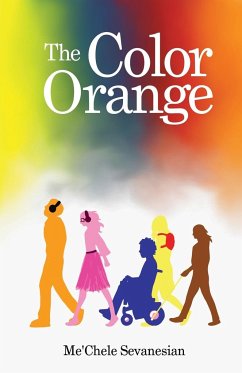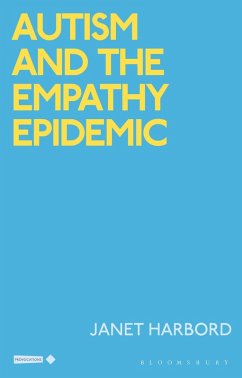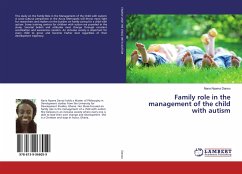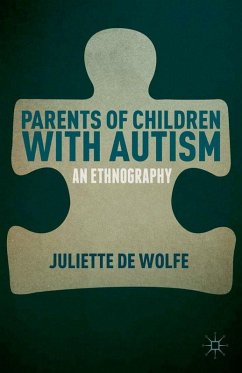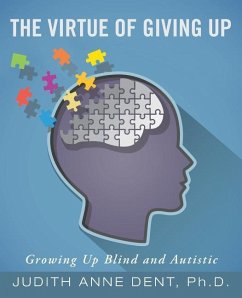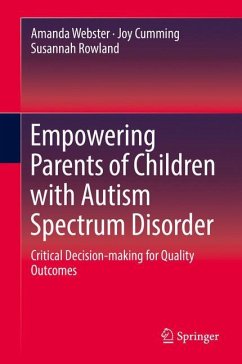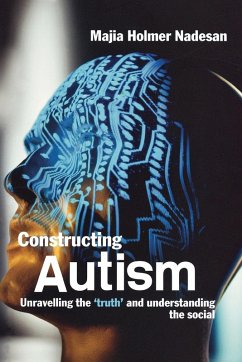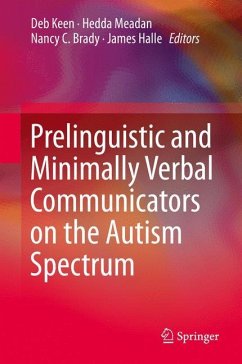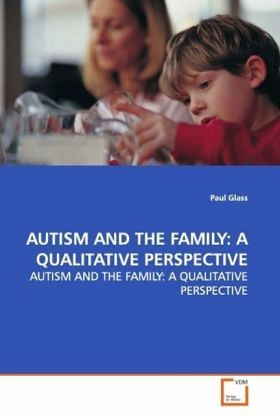
AUTISM AND THE FAMILY: A QUALITATIVE PERSPECTIVE
AUTISM AND THE FAMILY: A QUALITATIVE PERSPECTIVE
Versandkostenfrei!
Versandfertig in 6-10 Tagen
45,99 €
inkl. MwSt.

PAYBACK Punkte
23 °P sammeln!
The focus of this dissertation was to gain a better understanding of autism, and its effects on family life. The research gives a rich, qualitative account of what it is like to live with autism using first hand accounts as data, and what and how families are learning in the process. Using a phenomenological framework, this study was comprised of interview and observational data collected at the homes of six families with an autistic child. The data were analyzed using qualitative software (NVivo) and themes began to emerge. The themes were used to answer the question: What is the experience o...
The focus of this dissertation was to gain a better
understanding of autism, and its effects on family
life. The research gives a rich, qualitative account
of what it is like to live with autism using first
hand accounts as data, and what and how families are
learning in the process. Using a phenomenological
framework, this study was comprised of interview and
observational data collected at the homes of six
families with an autistic child. The data were
analyzed using qualitative software (NVivo) and
themes began to emerge. The themes were used to
answer the question: What is the experience of
living with an autistic child, and what does that
experience mean? Knowledge was added to the current
literature on autism in the areas of spousal
support, expectation adjustment, finding joy in
the little things, avoidance, grieving, anxiety
about the future, support systems, social
withdrawal, divide and conquer, anger,embarrassment,
sadness, intensity, living in the present, and
ambiguity.
understanding of autism, and its effects on family
life. The research gives a rich, qualitative account
of what it is like to live with autism using first
hand accounts as data, and what and how families are
learning in the process. Using a phenomenological
framework, this study was comprised of interview and
observational data collected at the homes of six
families with an autistic child. The data were
analyzed using qualitative software (NVivo) and
themes began to emerge. The themes were used to
answer the question: What is the experience of
living with an autistic child, and what does that
experience mean? Knowledge was added to the current
literature on autism in the areas of spousal
support, expectation adjustment, finding joy in
the little things, avoidance, grieving, anxiety
about the future, support systems, social
withdrawal, divide and conquer, anger,embarrassment,
sadness, intensity, living in the present, and
ambiguity.



